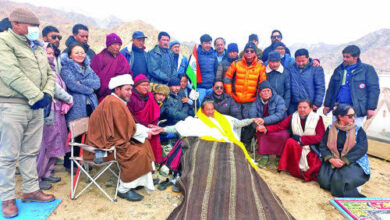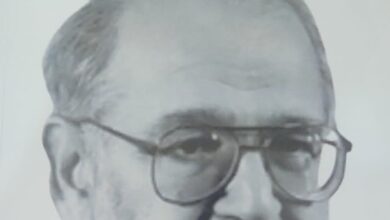Positive Aging – Learn to Age Gracefully
Undertake a healthy journey towards the end of life
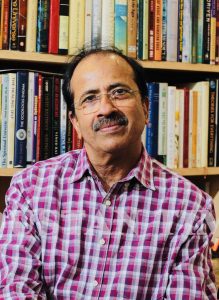
Balvinder Kumar ret IAS
Author of Redesign Your Life in Modern Age
& Explore Your Life Journey
We are all programmed to die one day. How many tomorrows we are going to see; we have no idea. However, we all live as if we are destined to live for ever. This is the biggest irony of life. We never notice how much time has already gone and the time which is left we can only guess wildly. As long as we exist, death is not with us, when it comes, we don’t exist, said famously by Ernest Becker, the author of “Denial of Death”. Life is short if we waste time by living a repetitive and habitual life. Life is long if we keep on learning and growing by experiencing new things in life. Most of us run after wrong things thereby waste lot of precious time, allocated to each one of us.
People can survive for decades with terminal diseases. Some others die instantly. They don’t get time to prepare themselves for dying. Some even don’t get up in the morning. Oh sadly, few people beg and pray for early death. They desperately want to die. What a life? Full of uncertainty. We humans are highly vulnerable, delicate and prone to accidents, diseases and calamities. Off course, some element of uncertainty and surprises will always be there throughout our lifetime. Like, a person is travelling by road and met with a fatal accident due to someone else mistake. However, substantial part of our life including aging can be controlled by us. Living is a skill to be learnt. We can potentially design our own destiny.
Do you know that at least 15 to 20 years of additional life is purely at our disposal? If we grow and age positively, we can avail these bonus years. In the world, a little over 53,000 people die every day. Nearly 63% of deaths, as per WHO’s estimates are because of life style diseases. These people could have lived longer, had they escaped from life style diseases like diabetes, obesity, cancer, heart and lung diseases.
Do you know that at least 15 to 20 years of additional life is purely at our disposal? If we grow and age positively, we can avail these bonus years. In the world, a little over 53,000 people die every day. Nearly 63% of deaths, as per WHO’s estimates are because of life style diseases. These people could have lived longer, had they escaped from life style diseases like diabetes, obesity, cancer, heart and lung diseases.
They themselves created those diseases. Seneca, a major philosophical figure of Roman Empire very rightly said that ‘learning how to live takes a whole life and what is more surprising is that, it takes a whole life to learn how to die”. He is right, we don’t accept the process of dying and death despite knowing its inevitability. In a way, we don’t want to die but at the same time, we don’t want to live gracefully.
Pause for a minute and think about our own aging process. We may be ‘aging’ physiologically only for 7 or 8 years in a decade. In one decade, we age chronologically by 10 years. But we may age only 7-8 years we lead a robust and healthy life – both physically and mentally. On the other hand, we may age physiologically by even 14 to 15 years or even more in a span of one decade. This happens when we don’t grow in a healthy way. Different biomarkers for various diseases deteriorate fast when we age. In this way, majority of us either hasten or slow down our aging process.
As most of the time we are busy in our day to day problems, we don’t spend time to look inside ad see things in bigger perspective. However, a time comes when start attending, more frequently, prayer meetings, after death, of our known and close ones. Then the question of old age and fast-approaching death comes more often in our mind. Thanks to improved living conditions and medical interventions, we can treat better some of the leading causes of death such as cancer and heart stroke. If we take care ‘loneliness’ and maintain an active life – mentally and physically with decent diet then our journey of remaining life can well be under our control.
Death and the process of dying is one of the most fascinating subjects in our life. Many institutions across the world are studying this subject to delay and possibly even defeat death. Medical experts have successfully identified ‘longevity genes’ as well as physiological and biological factors that control our aging process. Undoubtedly, the world his becoming a far better place to live. As a result, life expectancy has been increasing consistently. In every year, one year is added in our average life span. A great news indeed. With this speed, our younger generation will easily be crossing 100. It’s not a fiction that with the help of gene editing, non-technology, artificial intelligence etc, organ replacement including head will be very common in near future.
Death will be “optional” within just 25 years, and the aging process will be “reversible,” according to two genetic engineers, José Luis Cordeiro and David Wood. Their book, The Death of Death, asserts that “immortality is a real and scientific possibility that could come much earlier than originally thought. Humans will die only in accidents, never of natural causes or illness, by around the year 2045.” They further maintain that “Old age starts to be classified as an ‘illness’ so that publicly funded research into its ‘cure’ can extend.” Cordeiro, who is based at MIT in the USA, says he has “chosen not to die” and that in 30 years’ time, he will be “younger” than he is today. There is no denying the possibility that that time may come sooner, rather than later.
We all want to die gracefully and peacefully. What is really dreadful about death is the suffering and pain that is associated with the process of dying. Therefore, we are fearful of death because of uncertainty, physical and emotional pain, and the loss of everything and everyone we have loved in life. The anxiety that’s caused by thoughts of ceasing to be is called death anxiety. Death is the most fundamental companion to anxiety.
Time is all in the mind. Its speed varied from time to time.
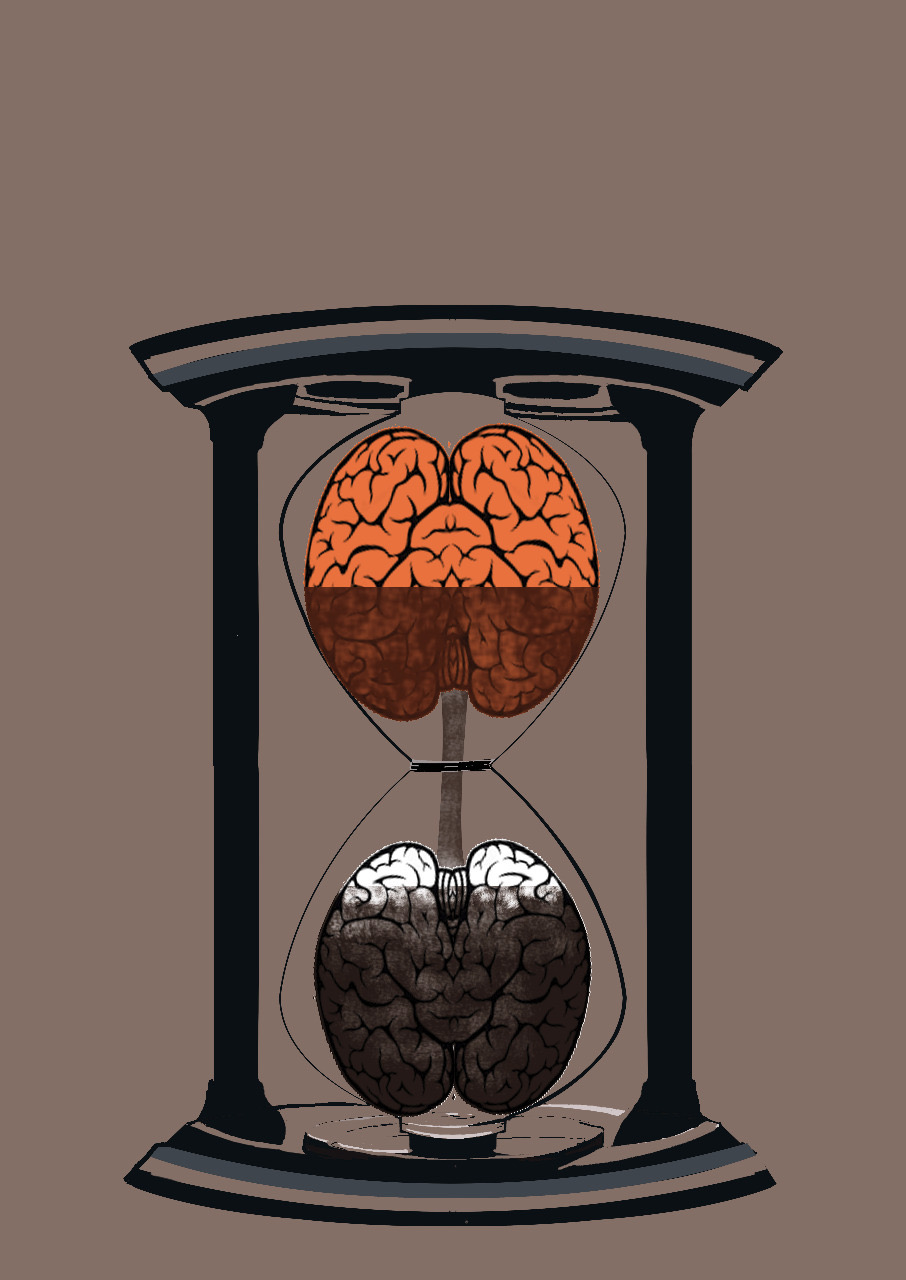
Many of us also start to feel “settled” once we enter our late forties or early fifties. Our children may leave the nest for college or job, get married, start a family…and life becomes comparatively comfortable and settled as the struggle period is, for the most part, over. At this point, many find themselves “mellowing out” – and feeling more satisfied with life. This tends to be especially true when one reaches retirement from active service or a profession, and life becomes more routine and habitual. The same routine in the morning — going for a walk, practicing yoga, reading newspapers, checking email, having breakfast followed by the afternoon leg of similarly regular activities. This goes on and on.
Even irrespective of age, we often experience time subjectively. When we are bored or in painful situations, time moves slowly. On the other hand, for one who is watching an entertaining film or engaged in interesting conversation, the time flies. In the words of Albert Einstein, “Put your hand on a hot stove for a minute, and it seems like an hour. Sit with a pretty girl for an hour, and it seems like a minute. That’s relativity.”
Time seems to move faster as we get older.
The time displays on our clocks and the time we all experience is different. Each one of us experiences time in our own unique way. Though time is objective, our experience of it is subjective. Most of us have surely noticed that time seems to speed up as we age. Now numerous studies have confirmed this experience. Time appears to be moving much faster than it did in our childhood and young adulthood when, for instance, a single summer felt like a year. Depending on one’s outlook and experience, the days, months, and years appear to offer either less or more time than usual.
Researchers have not, thus far, been able to pinpoint the exact reason or reasons why the perception of time changes so radically as we age. While there are many theories, it remains a mysterious phenomenon. In 2005, two German researchers at Ludwig Maximilian University of Munich conducted a very important study on time perception. Around 500 participants, ages 14 to 94 years, took part in the study. They were asked to fill out questionnaires relating to their perception of the passage of time. Possible answers ranged from “very slowly” to “very fast.” Results support the popular consensus that the passage of time seems to accelerate with age.
Recently, another study also concluded that “Physics is the reason time seems to fly when you’re grown.” According to Adrian Bejan, the J.A. Jones Distinguished Professor of Mechanical Engineering at Duke University, ‘’the present is different from the past because the mental viewing has changed, not because somebody’s clock rings. Days seemed to last longer in your youth because the young mind receives more images during one day than the same mind in old age.” He further explains that ‘the fact that adults have fewer new experiences than children contributes to the appearance that time is moving faster. Therefore, as we get older time becomes slower because no new experiences and so no processing of images.
During old age, why do the passage of time accelerate. Can we slow it down?
When we are young, we continue to experience new things in life, facing fresh delights and novel challenges. As we make our way into adulthood, there may also be a struggle for better living conditions. At that time, comparatively speaking, time moves slowly. On the other hand, when we get older, we mostly experience repetitive and habitual life, doing the same things again and again. At that stage, time, unbroken by nuance, seems to move much faster. Older people tend to say they “don’t know where the time has gone.”
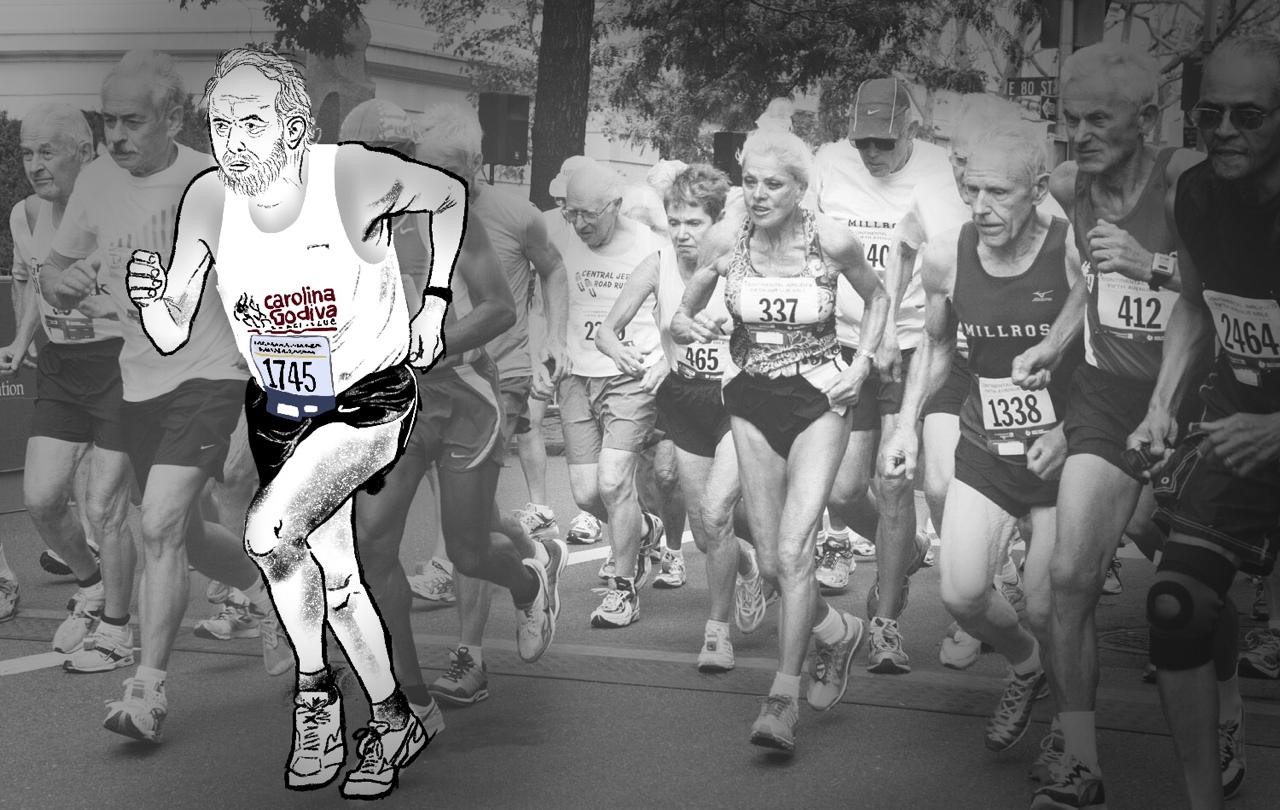
One convincing explanation of this old/young difference in time perception is that when we are getting old, our life often becomes highly repetitive, routine, and habitual. As there are hardly any new and unfamiliar experiences, the brain is not processing new information. Life remains by and large the same day after day – its hours smudged in sameness.
Now the question arises as to whether we can slow down the pace of time as we get older? Yes, we can do it by being open to trying and experiencing new things in life. By visiting new places, starting new projects, learning new languages, reading books and magazines, and playing mind games like Sudoku, we can make our life more interesting and creative. We must also try to minimize our routines.
What we are required to do is break down the walls of your comfort zone, come out from the areas of comfort and ease and start venturing into new fields, develop new habits, and learn new skills. All these activities will definitely help anybody to escape the sense of loneliness and vulnerability. Secondly, they will go a long way toward sidestepping age-related mental diseases like dementia and, most importantly, help us to lead a healthy and fulfilling life.
We have all the potential to slow down our aging process
There are many effective ways by which we can manage our aging speed. Depending upon our lifestyle choices, in a single decade we can age by fifteen years or just seven years. Obviously, some age much faster than others. Many age-related physical symptoms become very prominent in some people while in others they appear quite later. As we age, many starts witnessing increased fatigue, weakened bones, and ill health; we start observing wrinkles, age spots, and sagging skin. Aging is an outcome of complex changes in our normal biological functions.
There are many reasons why we age. However, three well-established triggers of the aging process are, first, shortening of telomeres, the tip at each end of chromosomes in our cells; second, deterioration of the mechanism that repairs damage to DNA; and lastly, accumulation of free radicals in the body. When cells divide chromosomes are replicated and each daughter cell inherits an identical pair. Chromosomes are thread-like very minute structures located inside the nucleus of cells. Each chromosome is made of protein and a single molecule of deoxyribonucleic acid (DNA).
Telomeres make sure that the DNA gets copied properly when cells divide. Each time a cell copies itself, the DNA stays the same but the telomeres get shorter. A time comes when telomeres get too short to do their job, causing our cells to age and stop functioning properly. Therefore, telomeres act as the aging clock in every cell. Once telomere length reaches a particular cut-off point, the cell can no longer divide and eventually it dies.
How telomeres work and why some people age faster than others still needs to be answered by scientists. Further, as we age, the environment and normal cellular processes cause damage to our genes. This damage compounds over the course of life and is known to accelerate aging. Regarding free radical theory, many of the changes that occur as our bodies’ age are caused by free radicals. Damage to DNA, protein cross-linking, and some other changes are attributed to free radicals. Over time, this damage accumulates, resulting in aging. That’s why, anti-oxidants are becoming very popular in our diet. They neutralise free radicals in our body.
There is no doubt that we have tremendous power to slow down our aging process. Many variables that influence how long we live can be altered. In this age of social media, plenty of videos go viral every day in which 90-plus people are dancing, running marathons, and many other activities which we generally don’t expect at that age. The actions we can take to increase our odds of a longer and more satisfying lifetime are really quite simple. Every day, new research is published on how to slow down aging. There is a 2019 study that establishes that positive thinking can result in an eleven to fifteen percent longer lifespan and can increase our likelihood of living to eighty-five or older.
The first and the foremost requirement for longevity is that we remain active throughout life. One undisputed fact about the modern lifestyle is that we humans are becoming less and less active. The majority still don’t move or walk sufficiently during the day. Insufficient physical activity is a leading risk for many lifestyle diseases, such as diabetes, heart and lung diseases, and cancer, and has a negative effect on mental health and quality of life.
In fact, people in India are among the world’s laziest, taking an average of 4297 steps in a day, compared to the world average of about 5,000 steps. Out of 46 countries, India’s rank is 39th. For a healthy life, we should take at least 10,000 steps a day. Most of the workday, as we know, is spent sitting for up to 8-9 hours a day — highly harmful for our health.
Recently, the World Health Organisation (WHO) released a report ranking countries based on how physically active their citizens are. Surprisingly, India ranked 117 in the list of 168 nations, with 34% of our population being far too sedentary. Medical science agrees: there is no substitute for physical exercise for those seeking a long and healthy life. Also weighing in on longevity-friendly measures, Harvard Medical School, USA, outlines the following five mandatory actions (other than the obvious avoidance of smoking):
1. Regular physical and mental exercise/activities daily
2. Eat a healthy diet rich in whole grains, vegetables and fruits, and substitute healthier monounsaturated and polyunsaturated fats for unhealthy saturated fats and trans fats. Also eat less! Studies have confirmed that eating less helps reduce signs of aging.
3. Maintain a healthy weight and body shape.
4. Challenge your mind. Keep learning and trying new activities (to limit cognitive decline).
Latest medical research has established that to live longer, we must eat less, means consume far less calories, what we at present take. The calorie restriction increases our life span. Though our tendency is to eat more. To ensure this, intermittent fasting is becoming a latest fad. It means we give a long gap during the day. There is one popular “the 16/8 method” for fasting. This method involves fasting every day for 14 to 16 hours and restricting our daily eating window to 8 to 10 hours. Within the eating window, we can fit in two, three, or may be even more meals.
For the purpose of healthy and positive aging, we can’t ignore the significance of maintain right mix of gut bacteria in our body. More and more studies have established the role of gut microbes in our mental and physical health as well as our overall well-being. The connection between brain and gut is far more intimate and deeper than previously understood. Research has also confirmed that our gut bacteria are linked to many diseases such as diabetes, obesity, depression, and heart disease. Just as we are what we think, ‘we are what we eat’ is equally true. The health of our gut bacteria depends largely on our food habits.
To maintain a good balance of healthy bacteria in our gut, first of all, we must avoid excess alcohol and the diet high in saturated fat and animal protein should be avoided as much as possible. Then we are required to take prebiotic and probiotic supplements to help improve our gut health. To ensure a healthy population of intestinal bacteria, the following five actions are very helpful: 1. Eat a wide range of whole, plant-based foods; 2. Include more fibre in your diet; 3. Avoid highly processed food; 4.Consume more probiotic and prebiotic foods; and 5. Take a daily supplement of probiotics.

Over and above all, meditation also helps in slowing the aging process. As we have seen earlier, the shortening of telomeres is the main physical reason behind aging, and one of the main reasons behind this shortening is mental stress. Numerous studies have established that meditation practice helps reduce mental stress to a great extent. Stress is one of the greatest contributors to lifestyle diseases, the most outstanding being obesity, diabetes, and cardiovascular ills.
We must learn the art of accepting death and dying gracefully
No one dies because of aging. There is almost always a natural cause of death when we die, even in very old age, such as diseases or infections. Major causes of natural deaths are heart attacks and heart diseases, diabetes, diarrheal disorders, respiratory/lung diseases, cancer, Alzheimer’s and other kinds of dementia.
As we get older, most of us slowly and reluctantly start accepting the inevitability of death. Our only wish for those final days is to die gracefully, without pain and suffering. We don’t want to experience uncertainty about death. One study shows that when people face imminent death, they start accepting it and focusing on the positive because they know they don’t have much time left. Absent soul-searching and acceptance, most people are uncomfortable in talking about their death. This is also the reason why very few write a will, designating distribution of their assets after they die.
We all want to experience a “good death” after living to the fullest. Looking into what constitutes a successful or good death, an important study by researchers at the University of California, San Diego School of Medicine, came up with some answers. The study identified 11 core themes of a good death: preferences for a specific dying process, pain-free status, religiosity/spiritualty, emotional well-being, life completion, treatment preferences, dignity, family, quality of life, relationship with healthcare provider, and “other.”
The top three themes across all stakeholder groups were preferences for a specific dying process (94% of reports), pain-free status (81%), and emotional well-being (64%). People want to die not only peacefully, but with some measure of control. No one wants to suffer pain, which is the biggest fear of all. To eliminate suffering, euthanasia (the painless killing of a patient suffering from an incurable and painful disease, or in an irreversible coma) or palliative care (specialized medical care for people living with a serious illness) are becoming popular worldwide.
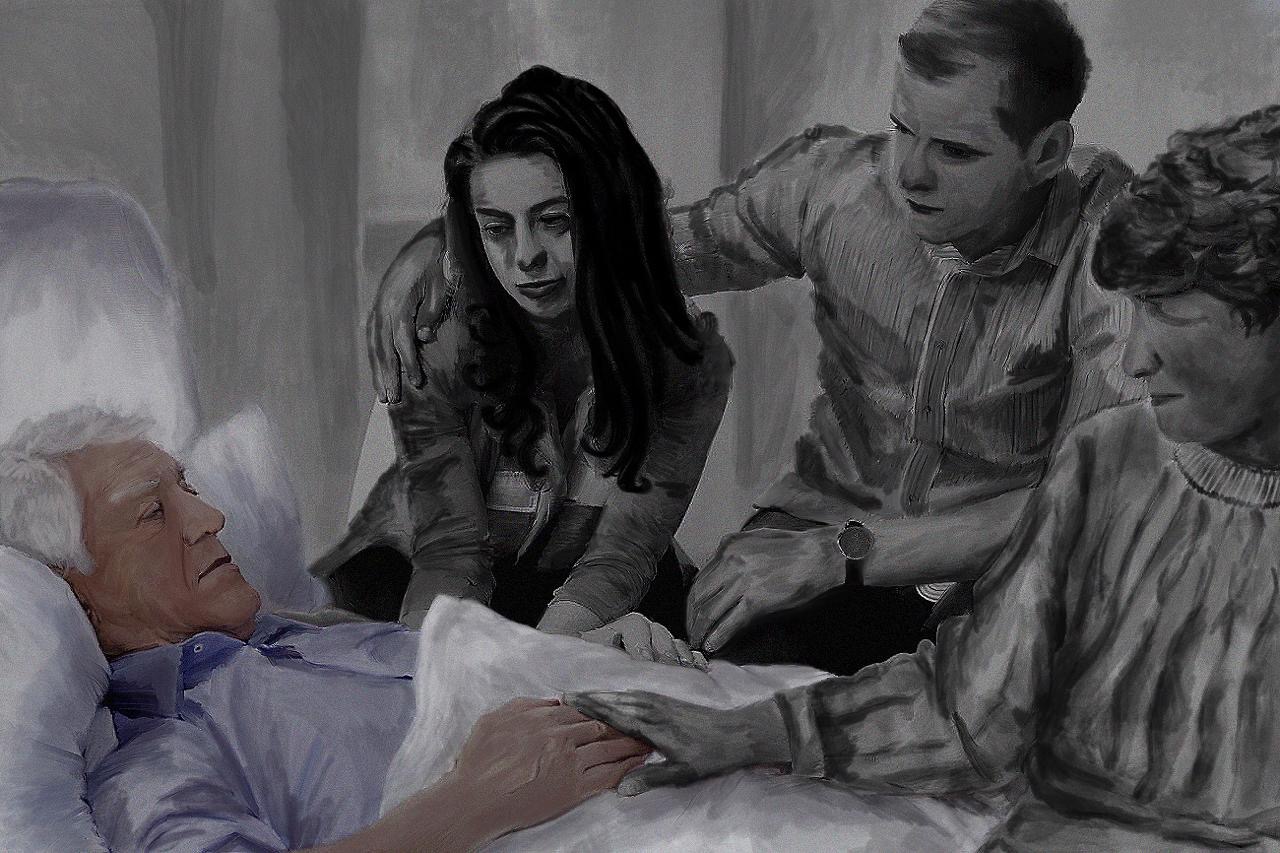
The top concerns for aged people facing imminent death are first, that their death be painless; second, that they not become a burden on others; and thirdly, that they are not alone near or at their death. Loneliness is a great concern for many senior citizens. Sadly, most people do not want to talk about death. To discuss one’s own death is generally taboo, especially in India. Even family members and close friends of terminal patients don’t dare to discuss this delicate subject. The fact is, by not acknowledging and discussing death, we cause more harm to ourselves. Our quality of life would be improved considerably if only we could embrace death gracefully. We must take death and dying as a natural phenomenon in life, and work on removing our inhibitions.
In our later most part of life, 3 things are, to my mind, extremely important. First, we must continue to follow our passions, spend time, whatever maximum we can, for pursuing interests like writing, reading, painting, photographing, gardening, golf, playing cards, cleaning, or even gossiping with friends. We need to lead an active life, to the extent possible. Lighter exercises like walk, yoga along with meditation should be done religiously.
Secondly, we should continue to eat healthy food along with other medicines and supplements, as prescribed by doctors. Thirdly, we shouldn’t forget to spend time, whatever possible with our close friends and family members. We must avoid to feel ‘lonely’ and ‘boredom, if we stay alone at that age. There are ways to avoid loneliness even with the help of digital platforms including social media.
Being mindful of death can have a positive impact on our health and well-being. Our whole perspective on life will change when we keep the inevitability of death at the back of our minds. Our worries and fearful ruminations will become insignificant. We will always keep meaningful goals in mind. Quality of life improves if we think about death for at least a few moments before we start each day. This can be possible by way of mindfulness. Awareness of death will lead to greater self-awareness and more power of acceptance. This then opens the heart to more compassion and empathy for others.
Facing our own death when it becomes a certainty, as happens in cases of advanced cancer, is greatly eased by the practice of mindfulness. It can also be extremely helpful in alleviating pain. Rather than resisting and automatically reacting to pain, people can, through mindfulness, be aware of pain and accept it nonjudgmentally.
In addition to strong pain- relieving medications and palliative care, mindfulness can be a very effective approach to preparing patients for death. Through mindfulness, one can accept death more gracefully and peacefully. Of course, mindful acceptance does not completely remove the suffering, but it can reduce the pain and fear of death. Through acceptance, not only can we calmly acknowledge the onset of death, but also the feelings and thoughts associated with death.
There is also a Buddhist meditation practice called Maraṇasati, which uses various visualization and contemplation techniques to meditate on the nature of death. This is also known as mindfulness of death or death awareness. When we forget that we will die, we tend to lead a habitual and complacent life. We may even start doing things that we don’t really approve of or wish for ourselves. Through this meditation practice, we become more aware and accepting of death as a natural ending to our life. In Maranasati, practitioners learn to accept impermanence and suffering, while also becoming more closely and intimately aware of death.
Aging is a disease or curse because we’re physically and mentally declining and eventually we are going to depart the world. It’s finality. It’s the mindset and attitude that determine the course of our journey towards the end. It can become a blessing, once we accept inevitability of death wholeheartedly. We must start seeing aging as a journey of transition. What kind of journey we will undertake towards the end of life, can at best guess? However, one thing is certain that if we undergo positive aging and the process of dying then even if we suffer, God forbids, painful end due to severe illness, we can surely embrace and accept death gracefully.
================
The author is a retired IAS offcer and a spiritual writer. He has written 4 books namely Man’s Spiritual Journey, Awakening the Thinking Mind, Redesign your life in Modern Age and Learn Your Life Journey. He is also a regular practioner and teacher of meditation.



